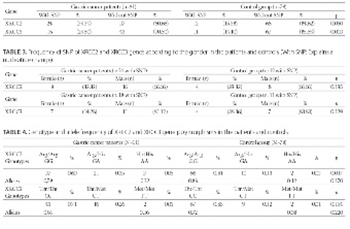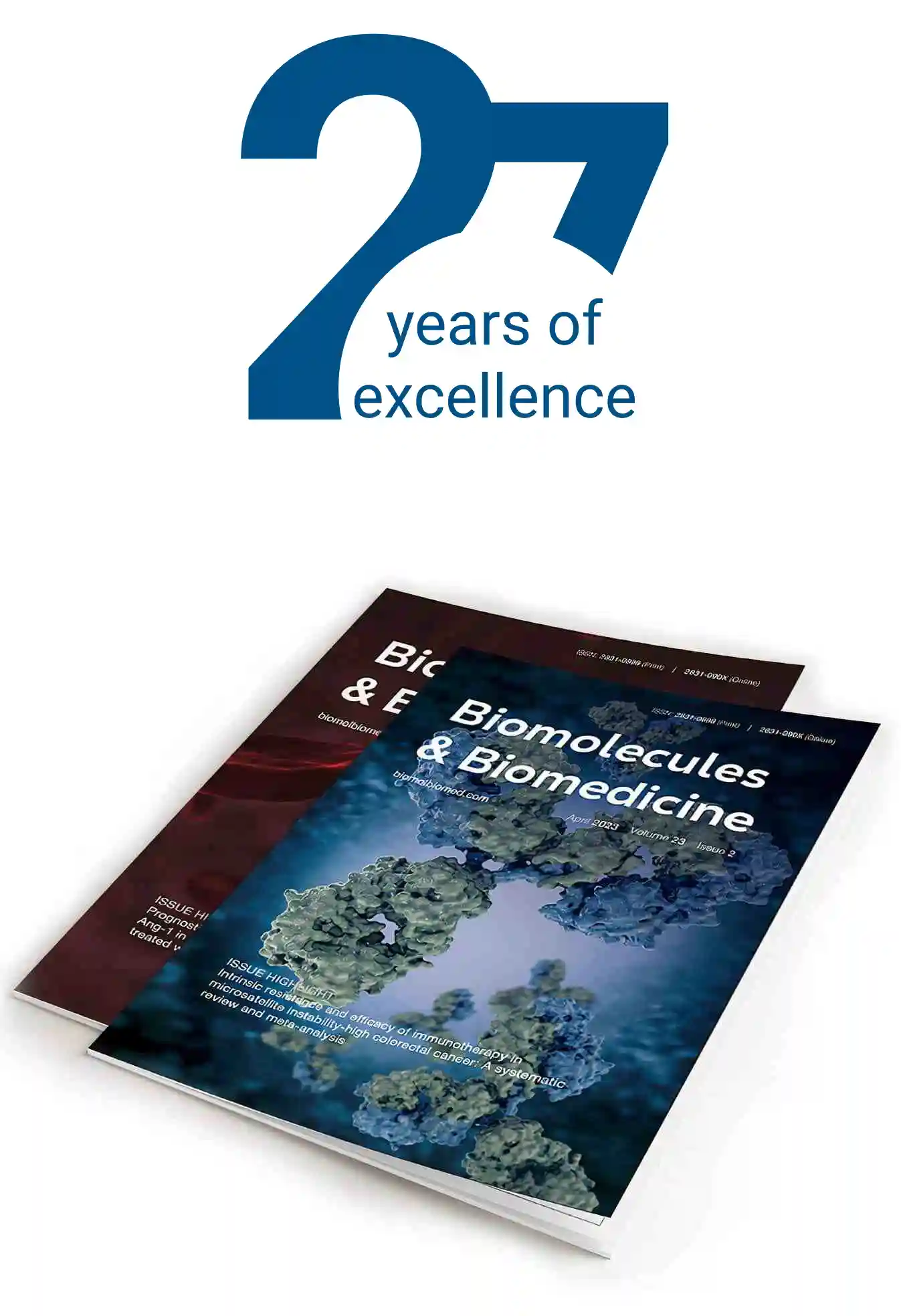Polymorphisms in DNA repair genes XRCC2 and XRCC3 risk of gastric cancer in Turkey
DOI:
https://doi.org/10.17305/bjbms.2014.4.7Keywords:
gastric cancer, XRCC2 and XRCC3 genes, polymorphism, TurkeyAbstract
We studied the prevalence of polymorphisms in genes XRCC2 and XRCC3 in stomach cancer patients who lived in North Eastern Turkey. A total of 61 cancer patients and 78 controls were included in this study. Single nucleotide changes were studied in XRCC2 and XRCC3 genes at locus Arg188His and Thr241Met. Blood samples were taken from the patients and controls, and DNA was isolated. The regions of interest were amplified using a polymerase chain reaction method. After amplification, we used restriction enzymes (HphI and NcoI) to digest the amplified product. The digested product was then run through gel electrophoresis. We identified changes in the nucleotides in these specific regions. It was found that the Arg188His polymorphism of the XRCC2 gene was about 39% (24 out of the 61) among cancer patients. However, only 15% (12 out of 78) of the control group indicated this polymorphism. We also observed that 18 of the 61 cancer patients (29%) carried the Thr241Met polymorphism of the XRCC3 gene whereas 11 of the 78 (14%) individuals in the control group had the polymorphism. Our results showed a significant difference in polymorphism ratios between the cancer patients and healthy control group for the regions of interest. This result clearly showed that these polymorphisms increase the risk of stomach cancer and might be a strong marker for early diagnosis of gastric cancer.
Citations
Downloads

Downloads
Additional Files
Published
Issue
Section
Categories
License
Copyright (c) 2015 Bosnian Journal of Basic Medical Sciences

This work is licensed under a Creative Commons Attribution 4.0 International License.
How to Cite
Accepted 2014-09-06
Published 2014-09-13









